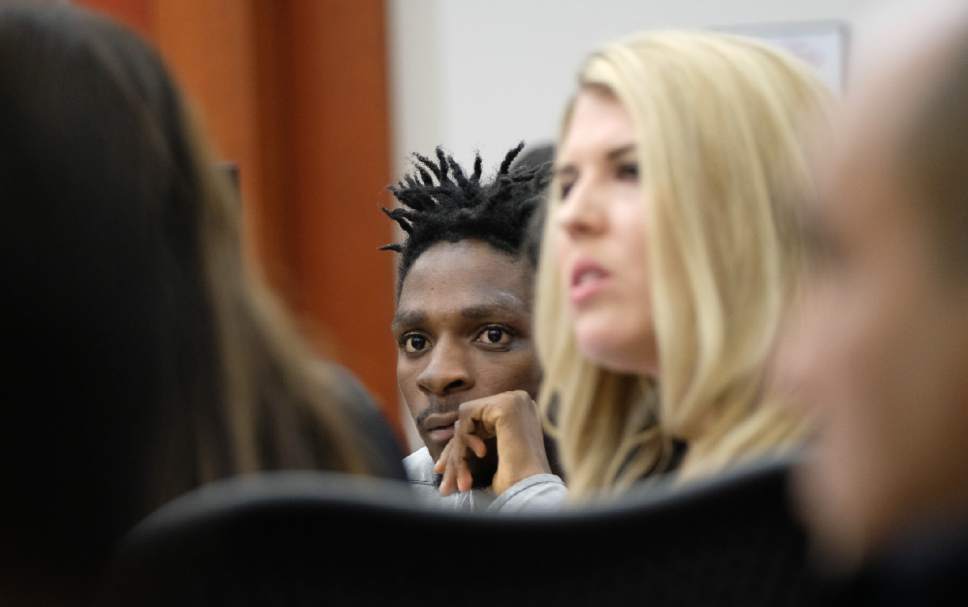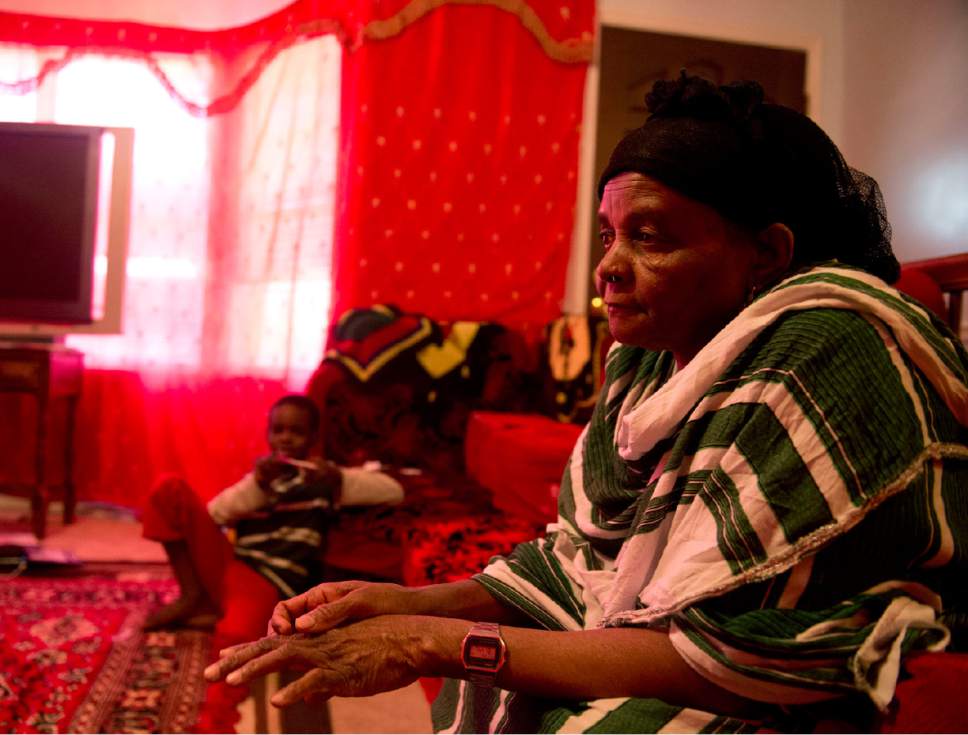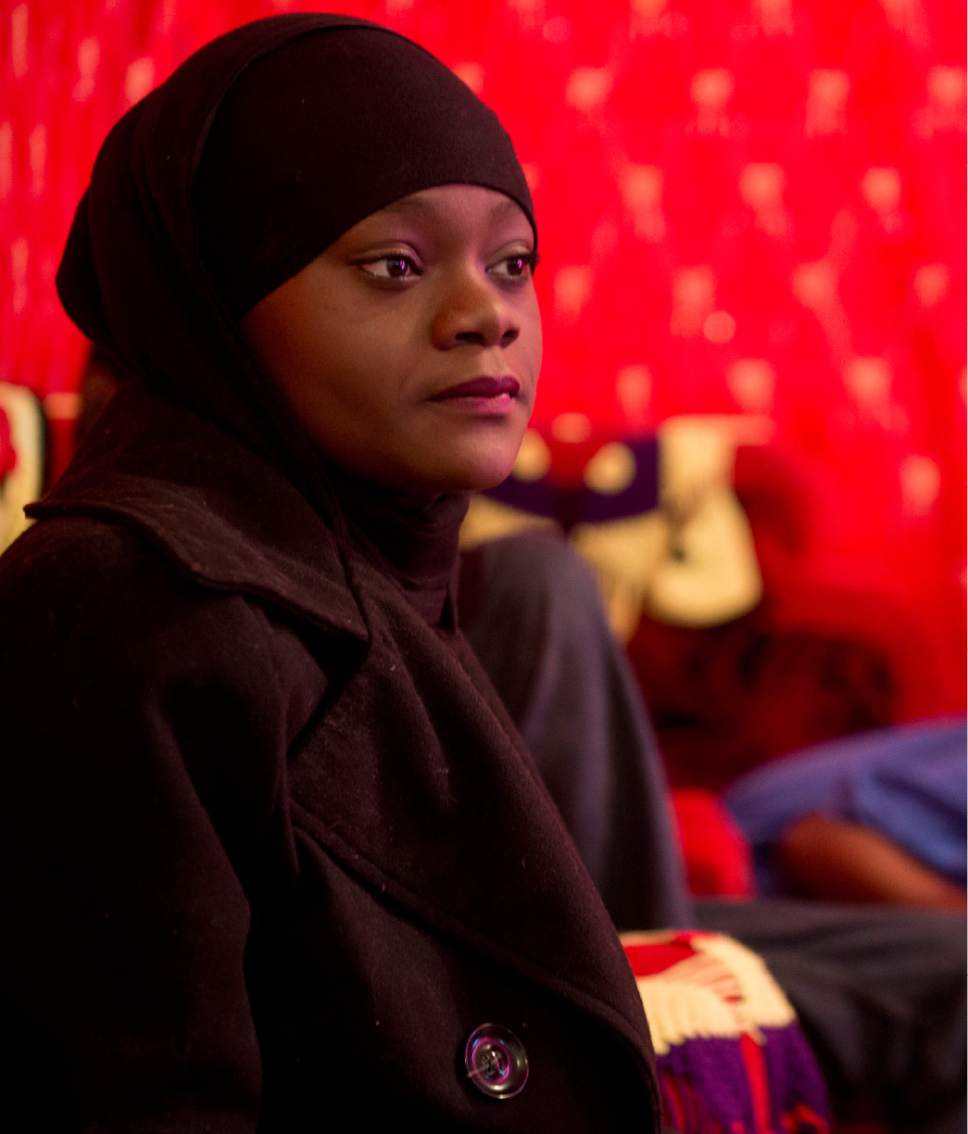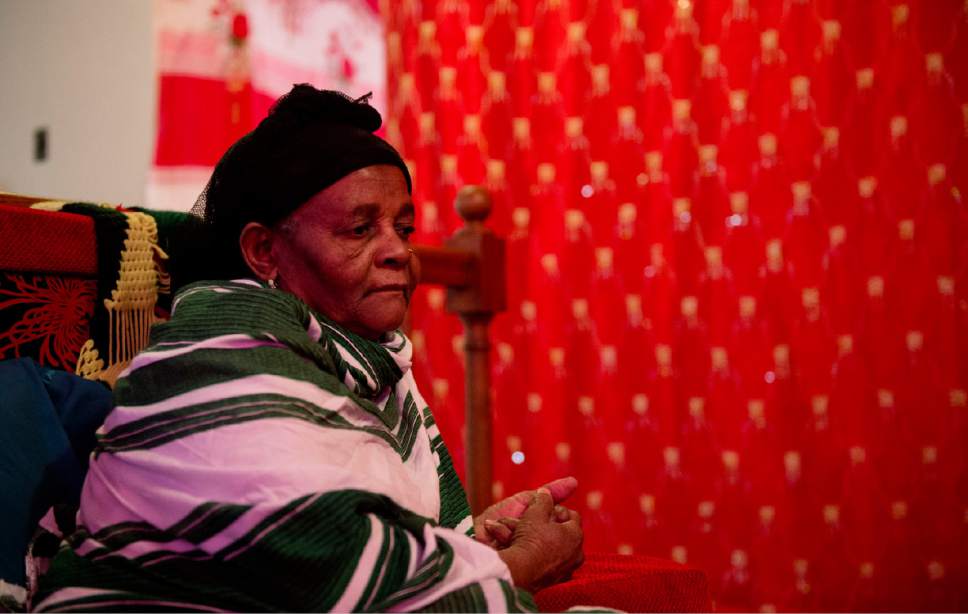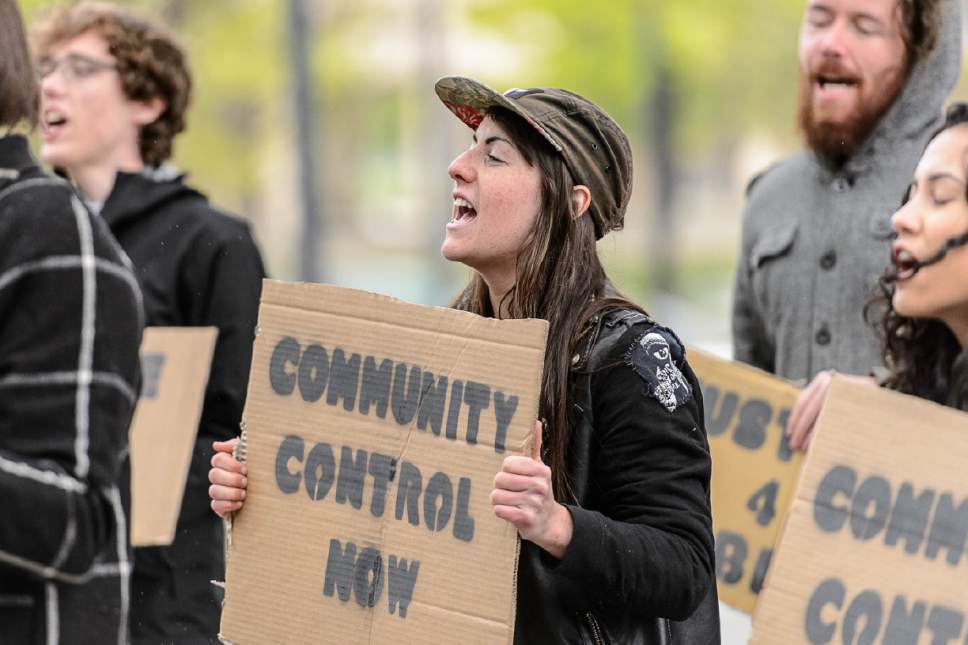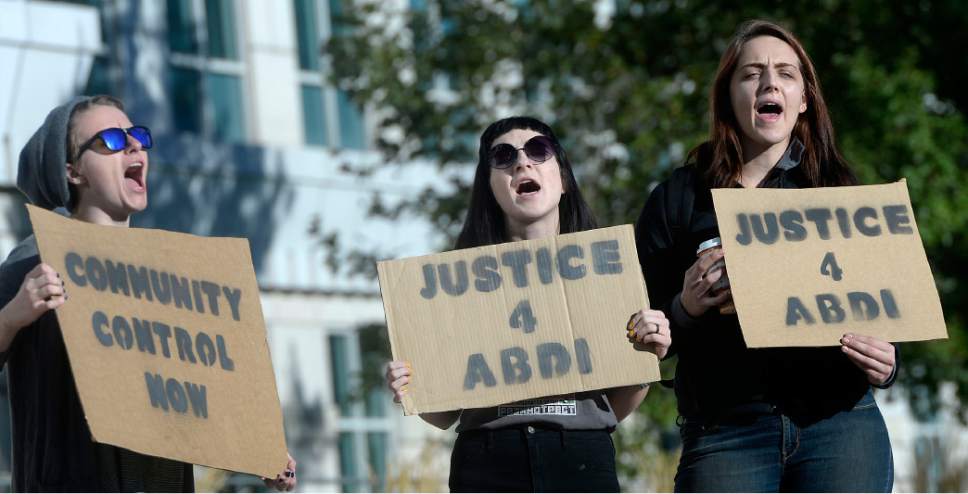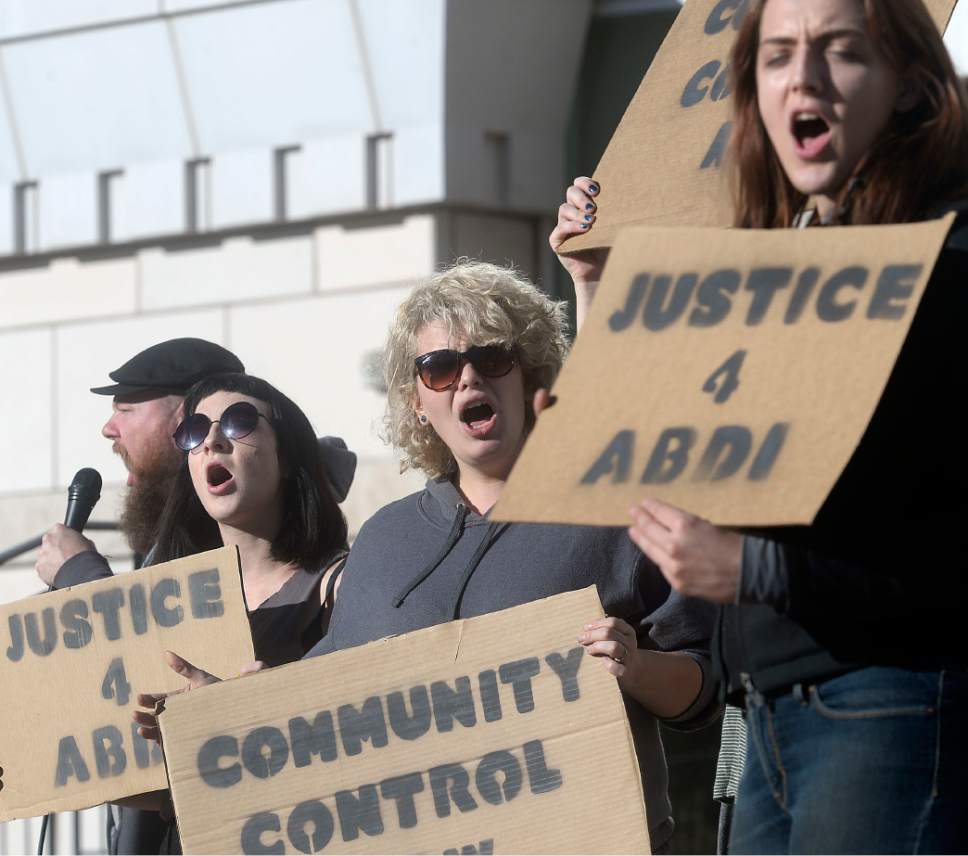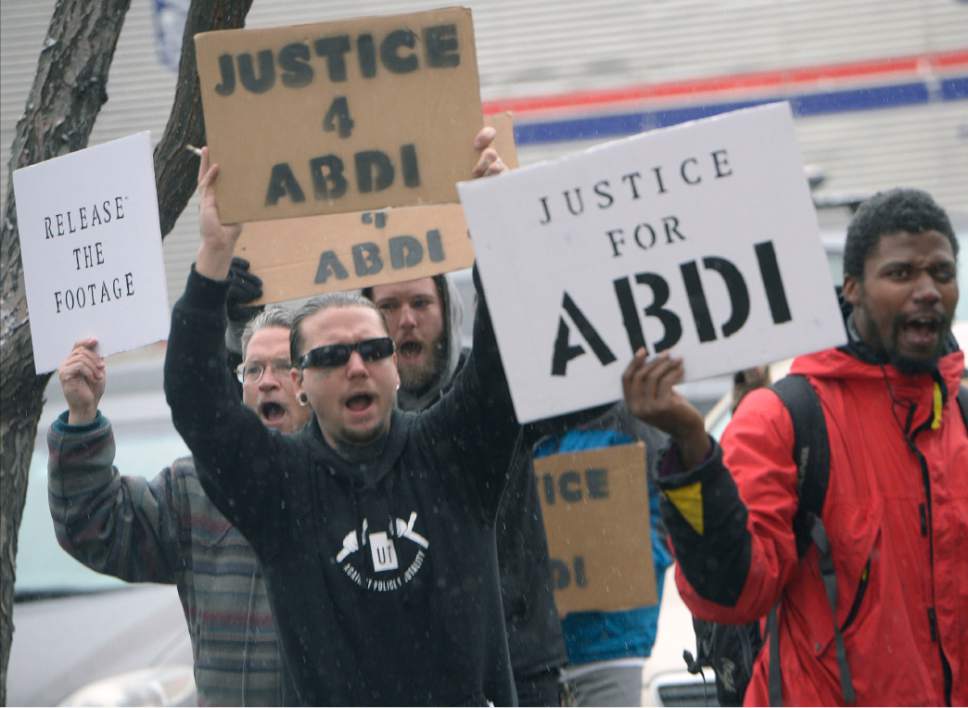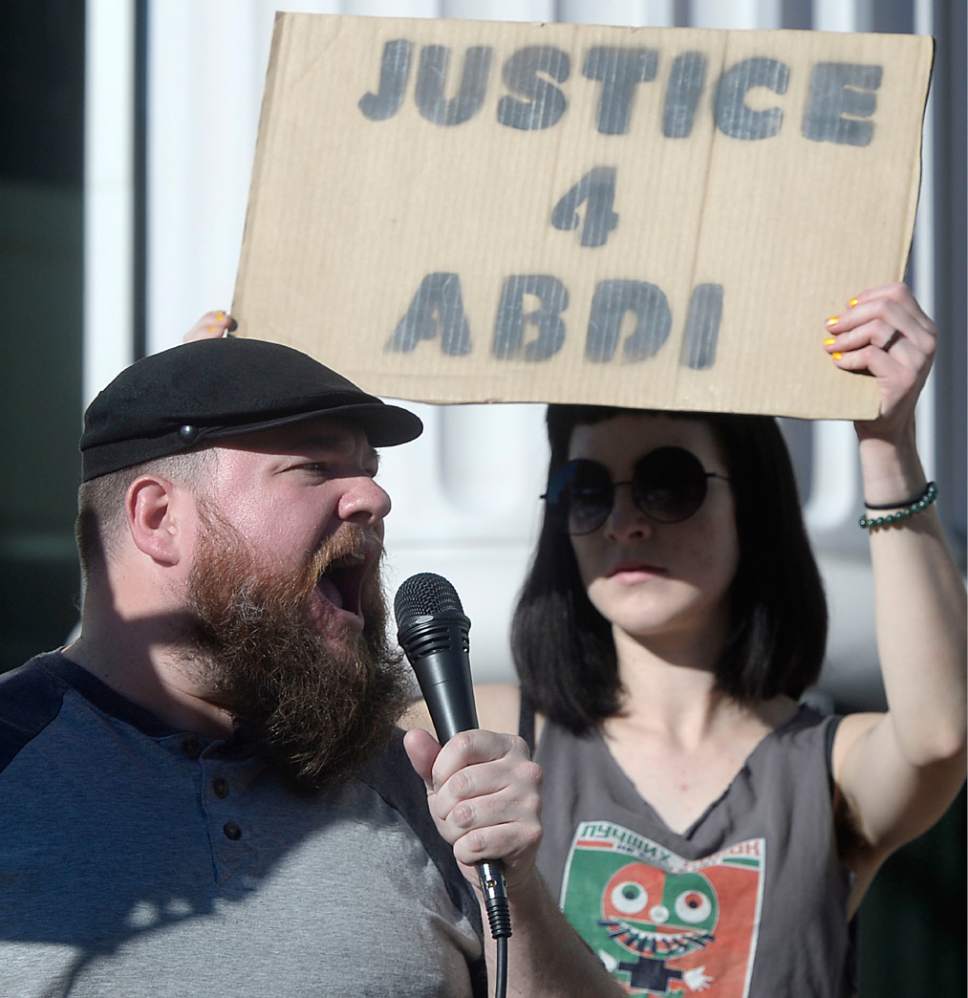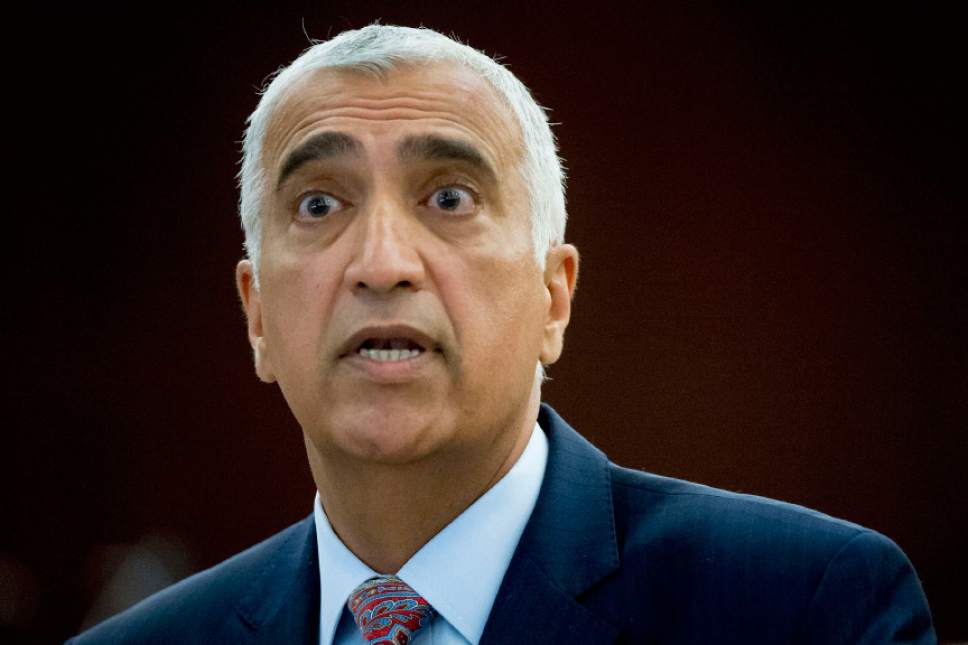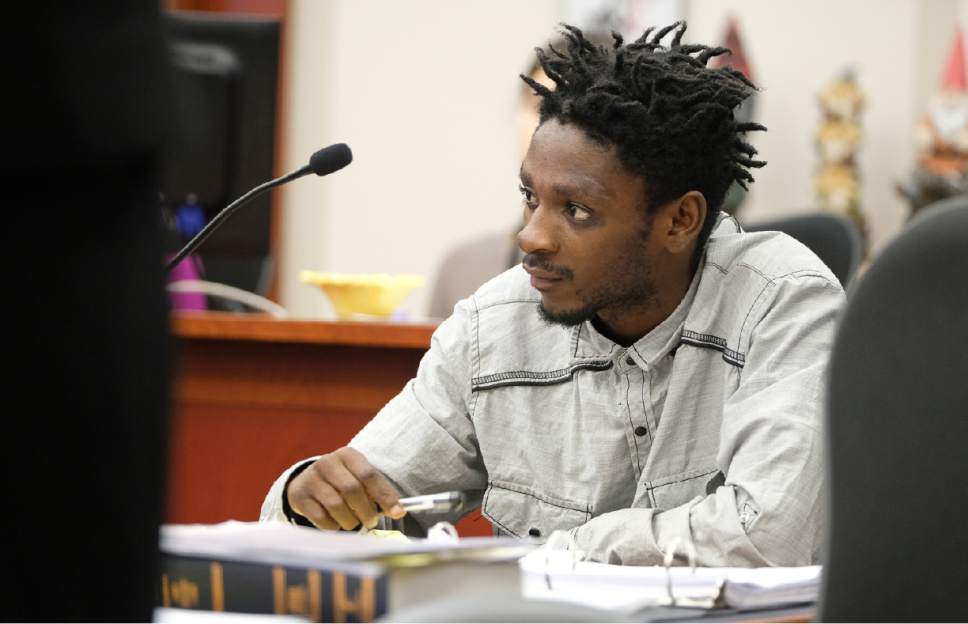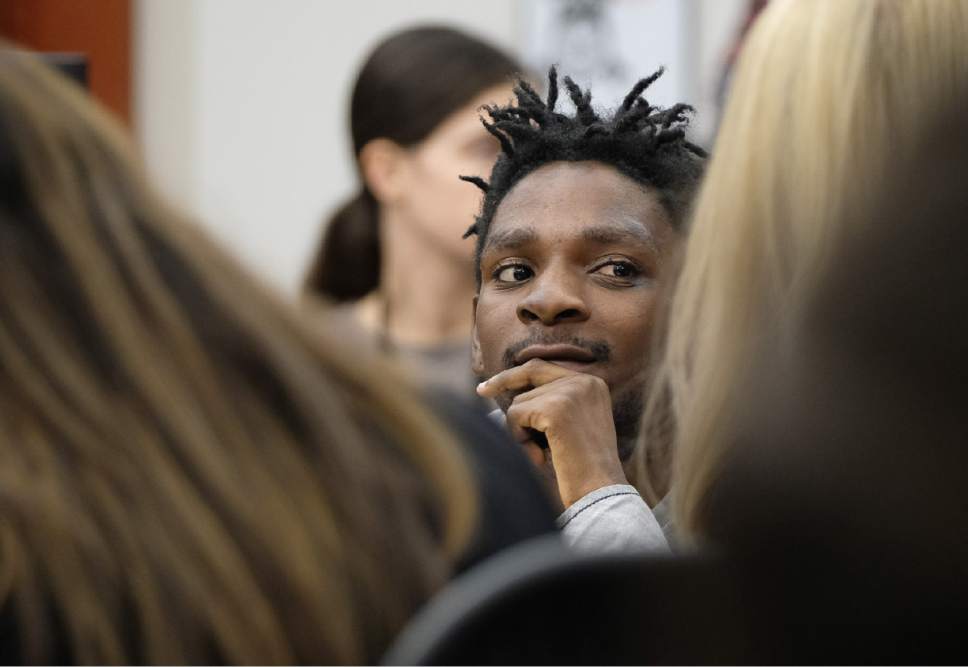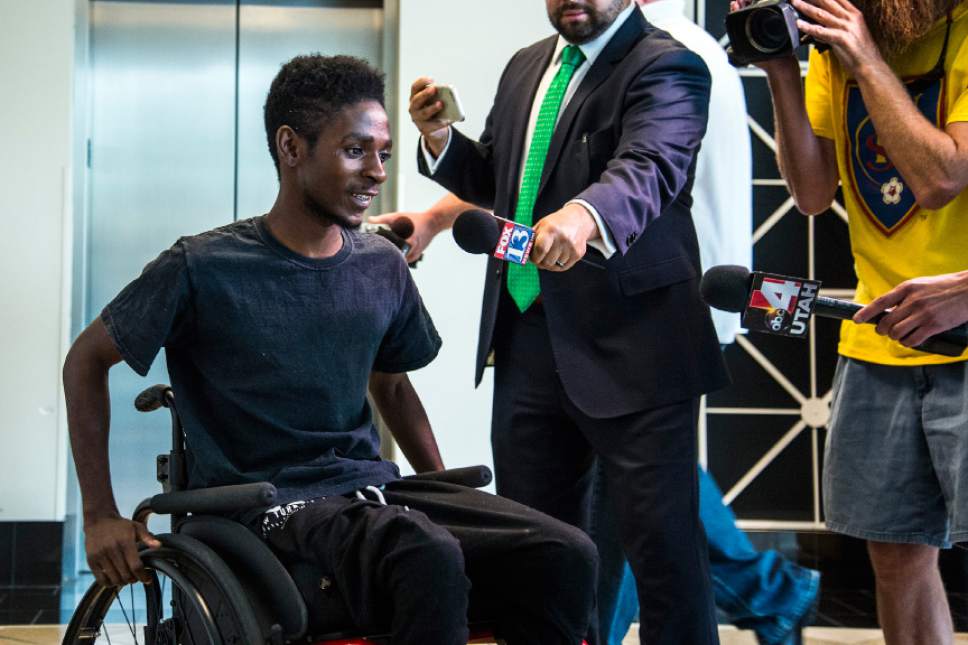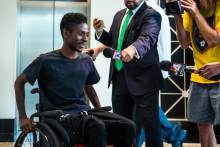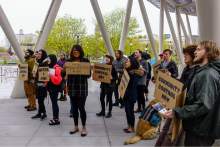This is an archived article that was published on sltrib.com in 2017, and information in the article may be outdated. It is provided only for personal research purposes and may not be reprinted.
A Utah teen charged with felony robbery and drug possession after he was shot by police near a Salt Lake City homeless shelter last year, resolved the juvenile court case on Friday with a plea deal.
Abdullah "Abdi" Mohamed, 19, was charged in 3rd District Juvenile Court with first-degree felony aggravated robbery and second-degree felony drug possession with intent to distribute — accused of striking a man who had asked to buy a marijuana cigarette from him for $1.10 on Feb. 27, 2016.
On Friday, he pleaded guilty to lesser third-degree felony counts of aggravated assault and drug possession with intent to distribute.
Judge Julie Lund fined Mohamed $500 and released him, closing the case.
The police shooting that hospitalized Mohamed and left him in a wheelchair sparked public protests and brought criticism from social justice groups.
Salt Lake County District Attorney Sim Gill's refusal to make public police body camera video of the shooting also brought objections, including from the American Civil Liberties Union of Utah, which petitioned for the tapes. Gill released that footage in January after showing it in court during Mohamed's preliminary hearing.
The severity of the charges brought by the district attorney, and his intent to try the case in adult court, also brought criticism.
Mohamed remains in a wheelchair as a result of the shooting and his attorney, Alicia Memmott, told the court Friday that he suffers from post-traumatic stress disorder.
"His life was completely changed that night," Memmott said. "He's still in a deep depression. What happened to him is a dangerous thing."
Ahmed Samatar, a caseworker, told the judge that Mohamed has not been taking prescribed antidepressant medication and was not attending therapy. The caseworker added that Mohamed was often high or drunk when he visited him at home.
Nonetheless, Samatar did not recommend secure confinement. "Based on his needs," he said, "we want him to stay with his family."
Prosecutor Michael Colby also complained that Mohamed was not cooperating with juvenile justice authorities.
"Services have been provided to Abdi, but he hasn't taken advantage of them in the past," Colby said. "It seems to defeat the whole purpose of keeping him in juvenile court."
But the defense lawyer told the judge that Mohamed's life has been on hold during the criminal case.
"So he hasn't made the progress the court would like," Memmott said. "Terminating this case closes this chapter and will allow him to move forward."
The judge told Mohamed — a Somali refugee — that she hoped he would get help.
She encouraged the teen to take his medication, go to therapy and get substance abuse treatment.
"I'm sorry this happened to you," Lund said, adding that she hoped he would become a productive member of society.
In August, Gill ruled that the two police officers who shot Mohamed were justified because the teen was about to inflict injury on another person. The safety of the officers was never in question.
In contrast, Salt Lake City's Police Civilian Review Board found that the actions of the officers were "not within" policy.
Although prosecutors sought to move the case to adult court, where Mohamed could have faced a prison sentence, the judge opted instead to keep it in juvenile court.
Mohamed had no choice but to plead guilty, said Ian De Oliveira of Utah Against Police Brutality.
The original charges and the motion to move the case to adult court show "just how far the D.A. has been willing to go to drag Abdi through the mud," De Oliveira said Friday.
The trauma he has suffered, psychologically and physically, must be unbearable, he added.
"It wasn't enough that he got shot four times in the back," De Oliveira said. "It's as though he was the number one enemy in the city."
Former Salt Lake City Council member Deeda Seed called it a "tragedy from the very beginning."
"It shouldn't have happened," she said of the shooting. "We want that kind of use of force to be used only in the most extreme circumstances."
Further, the district attorney's prosecution of Mohamed was "a massive over-response," Seed said.
"We're going to throw the book at him and make him an example?" she asked. "He's behaving badly. Should there be a consequence. Yes, absolutely. But based on his age and personal history, it was out of proportion."
Seed is a member of the Community Coalition for Police Reform and often meets with the Salt Lake City Police Department's community advisory group, which is open to the public. Mohamed's shooting, she said, accelerated a movement to get officers to practice de-escalation techniques.
"The good news is," she said, "in Salt Lake City, there is a robust effort to make sure this never happens again."
According to charging documents, after a man asked to buy a marijuana cigarette from Mohamed, the teen, then 17, replied that he had only methamphetamine and insisted that the man turn over his money so Mohamed could find him a joint.
The man refused, he later told police, and instead offered Mohamed a metal rake handle that he had found in the trash. This made Mohamed "really mad," the man said, and the teen began hitting him with the rake handle. A second man wielding a metal pipe also joined in the assault, prosecutors allege.
Two police officers testified at a preliminary hearing that they saw Mohamed hit the man with a hollow metal rod near The Road Home, 210 S. Rio Grande St. (440 West). The two ran toward the scene yelling at Mohamed to drop the weapon and opened fire.
On Friday, Mohamed told the court that he had no memory of the episode.
"I don't remember what happened. I was intoxicated," he said. "I got in a little argument with a guy and I blacked out."
The shooting took place on a busy Saturday night with multiple special events in the neighborhood. After the shooting, Salt Lake Tribune journalists saw onlookers shouting at the officers, and some threw rocks and bottles. The officers radioed for help, and nearly 100 officers from various agencies descended on the scene, some with riot shields and assault rifles.
The area was cleared within 10 minutes, said Salt Lake City Police Chief Mike Brown.
The Tribune does not generally identify juveniles charged with a crime, but Mohamed's family publicly identified him in the wake of the police shooting.


